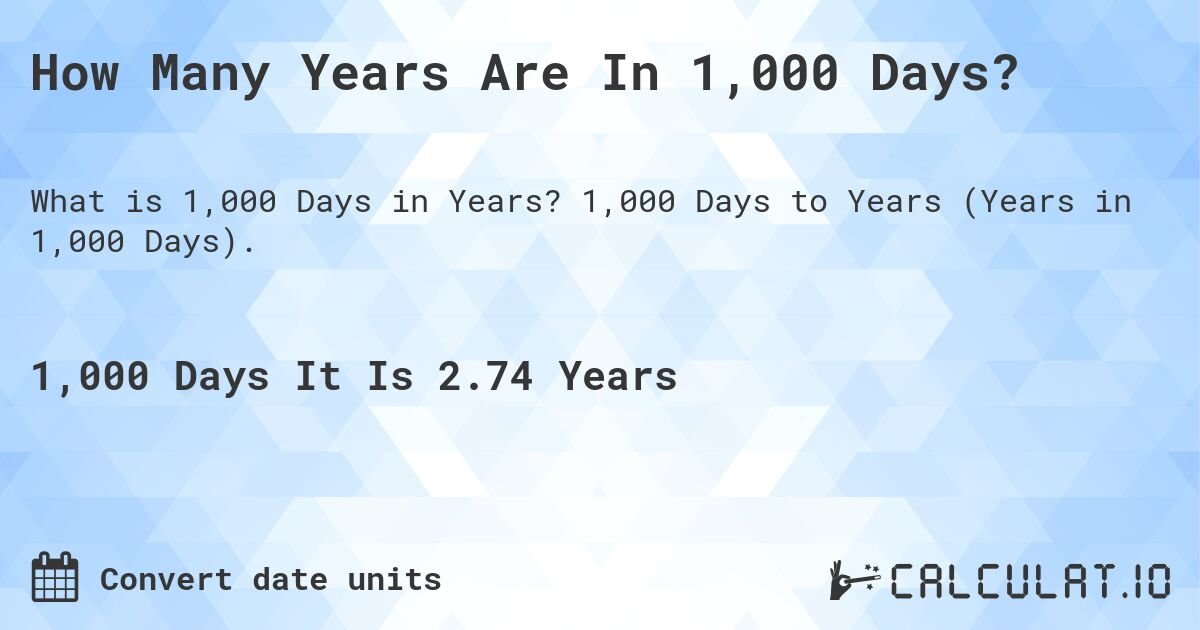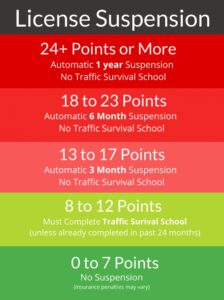One thousand days translate to approximately 2.74 years. When it comes to converting days into years, the calculation may seem straightforward, but there’s more to it than meets the eye. Understanding how time intervals relate to each other can offer valuable insights into our perception of time. Delving into the intricacies of ‘how many years is in 1000 days’ can unravel a fascinating journey through the concept of time itself. Join us as we explore this intriguing blend of mathematics and philosophy.
How Many Years Are in 1000 Days?
Understanding Time Measurement
Have you ever wondered about the relationship between days and years? In this article, we’ll dive into the fascinating world of time measurement to answer the question: How many years are in 1000 days?
Let’s start by exploring the basic units of time we use to measure our days, weeks, months, and years. Days are the smallest unit of time we commonly use. A day consists of 24 hours, which are further divided into minutes and seconds.
Moving up the time scale, we have weeks, which are groups of seven days. Four weeks make a month, and twelve months make a year. But how do we convert days into years?
Calculating Years from Days
To determine how many years are in 1000 days, we need to consider the length of a year. A common year has 365 days, while a leap year has 366 days. Leap years occur every four years to account for the extra time it takes the Earth to orbit the sun.
If we divide 1000 days by 365 days in a common year, we get approximately 2.74 years. However, if we consider leap years, the calculation changes. Dividing 1000 days by 366 days in a leap year gives us about 2.73 years.
So, the answer to how many years are in 1000 days depends on whether we include leap years in our calculation. In general, 1000 days equates to around 2.74 years.
The Impact of Leap Years
Leap years play a crucial role in keeping our calendar in sync with the Earth’s orbit around the sun. Without leap years, our calendars would slowly drift out of alignment with the changing seasons.
By adding an extra day to the calendar every four years, we ensure that our year remains closely matched to the time it takes for the Earth to complete one orbit. This adjustment helps us maintain the continuity of our seasons and important events tied to specific times of the year.
Practical Applications
Understanding the relationship between days and years can be useful in various practical scenarios. For example, if you have a project that spans 1000 days, knowing that this timeframe is roughly equivalent to 2.74 years can help you plan and organize your tasks effectively.
Similarly, when considering long-term goals or milestones, converting days to years provides a different perspective on the passage of time. It allows us to see the bigger picture and track our progress over extended periods.
In conclusion, the conversion of 1000 days to years involves considering the length of a year and the presence of leap years in our calculation. While 1000 days is approximately 2.74 years in a common year and 2.73 years in a leap year, the precise conversion may vary based on the specific context.
By exploring the relationship between days and years, we gain a deeper appreciation for the complexity of time measurement and how it influences our daily lives. Next time you find yourself counting down the days, remember that each day contributes to the passage of time, marking the milestones and memories that shape our journey through life.
Keep exploring the wonders of time and unraveling the mysteries of the universe one day at a time!
The First 1,000 Days of Life
Frequently Asked Questions
How many years are in 1000 days?
In 1000 days, there are approximately 2 years and 8 months. To calculate this, you divide 1000 by the average number of days in a year (365). This gives you roughly 2.74 years, which is equivalent to 2 years and 8 months.
Can you convert 1000 days into years?
Yes, 1000 days can be converted into approximately 2 years and 8 months. This conversion is based on the fact that a year has an average of 365 days, making it possible to estimate the number of years in 1000 days.
How many full years and months make up 1000 days?
1000 days equate to around 2 years and 8 months. This calculation considers the average number of days in a year to determine the total number of years and months contained within 1000 days.
Final Thoughts
In conclusion, one thousand days equal approximately 2 years and 8 months. This timeframe provides a tangible perspective when considering long-term goals or reflecting on past experiences. Understanding how many years are in 1000 days can help individuals better plan and appreciate the passage of time. Time management and setting milestones become more manageable with a clear grasp of this duration.






+ There are no comments
Add yours